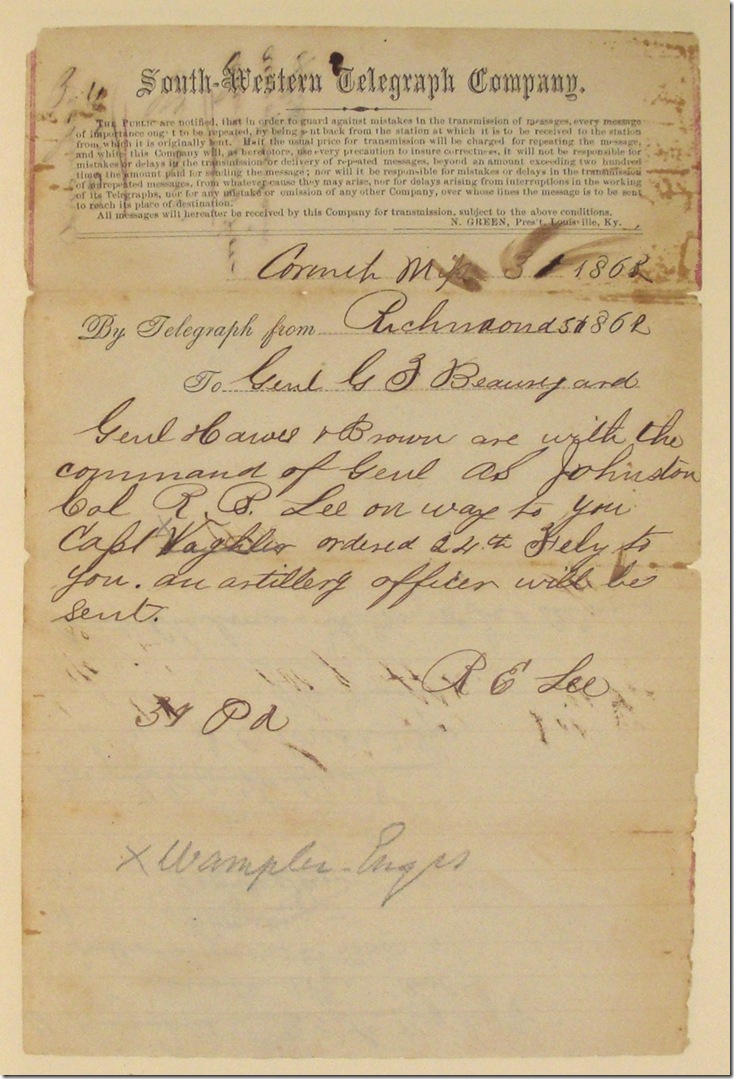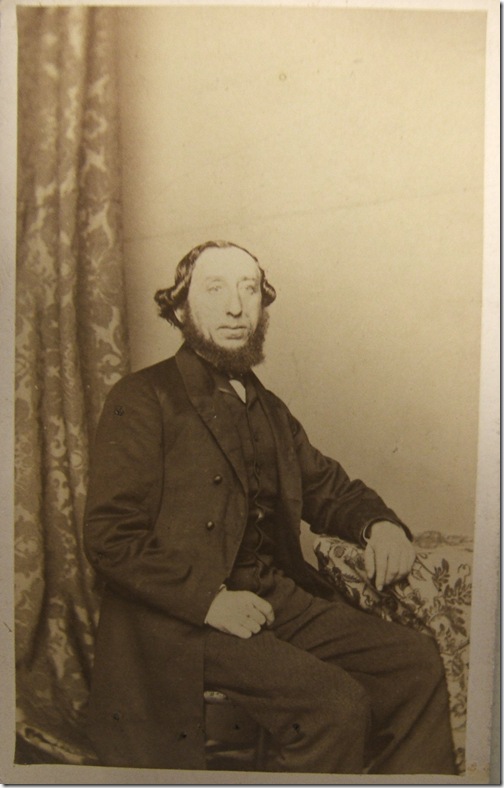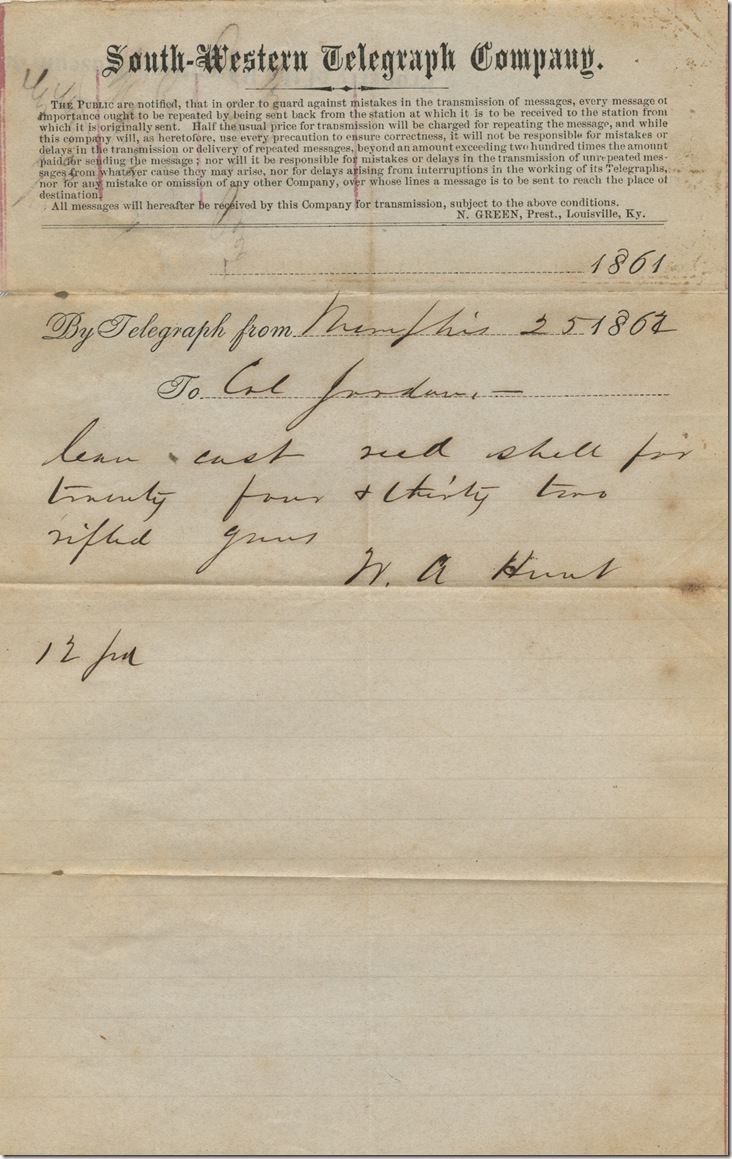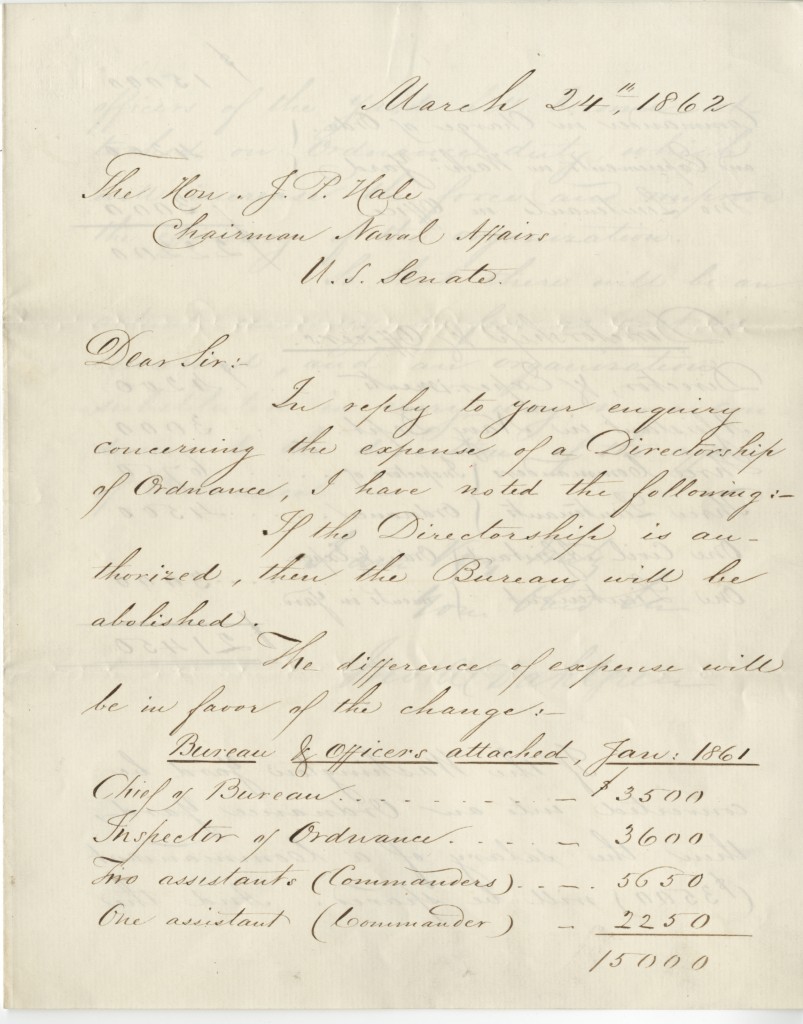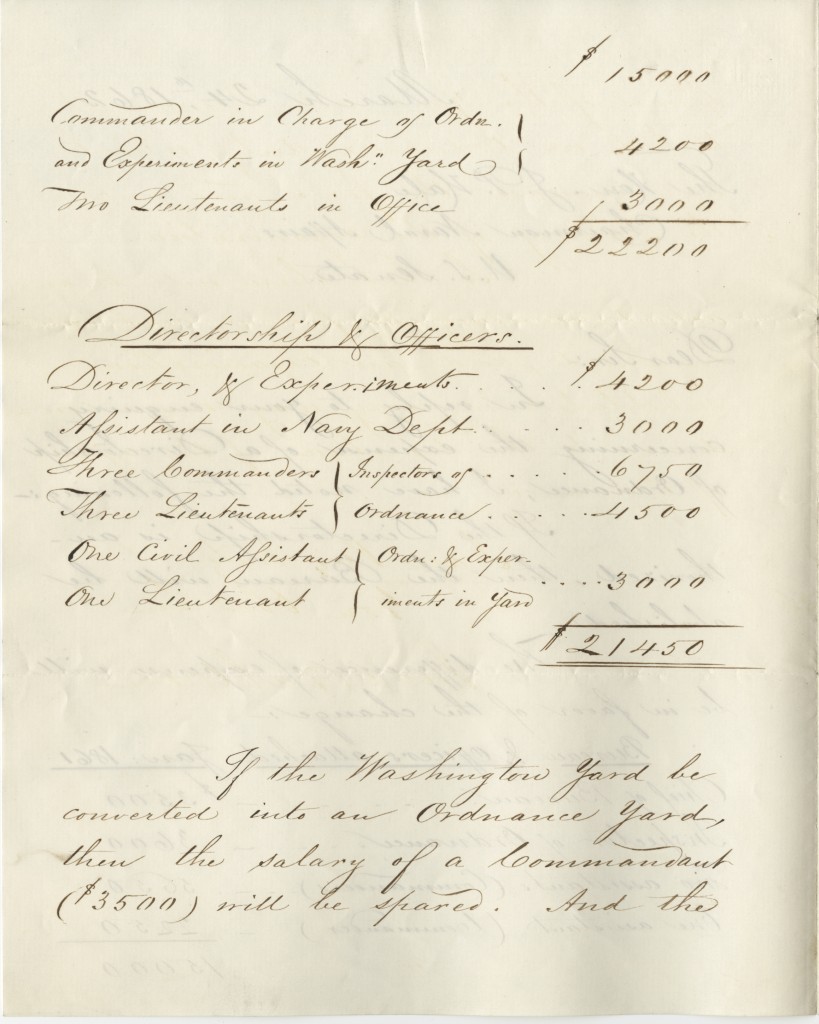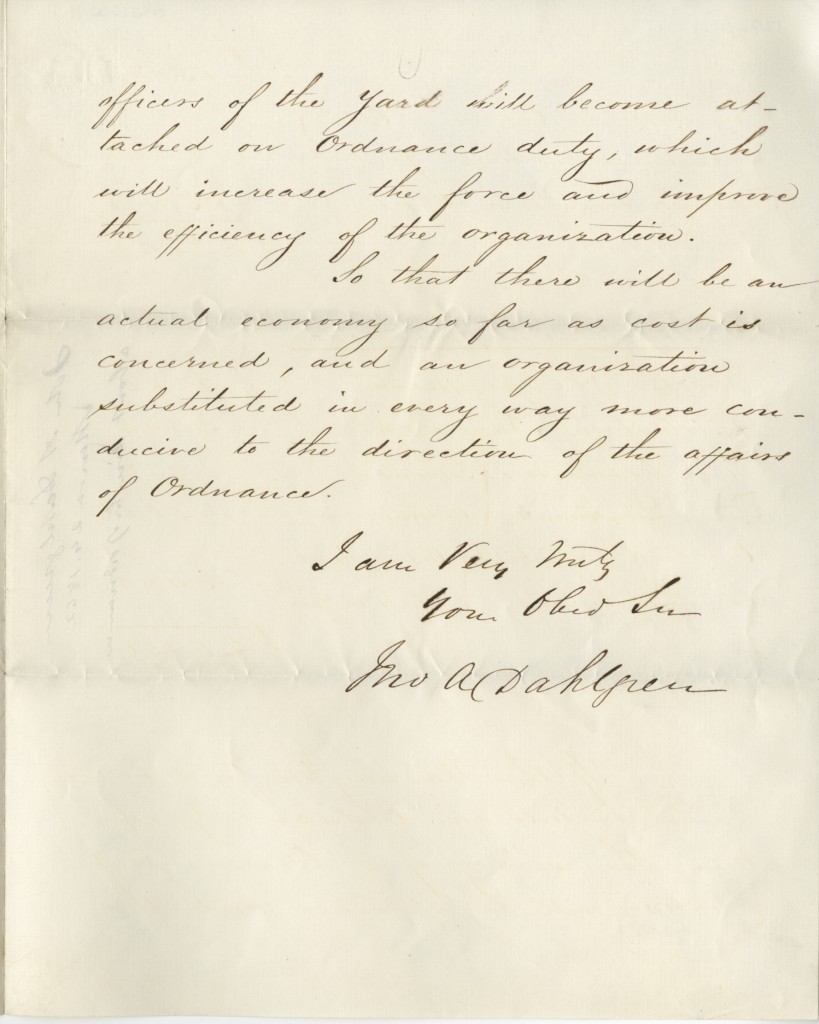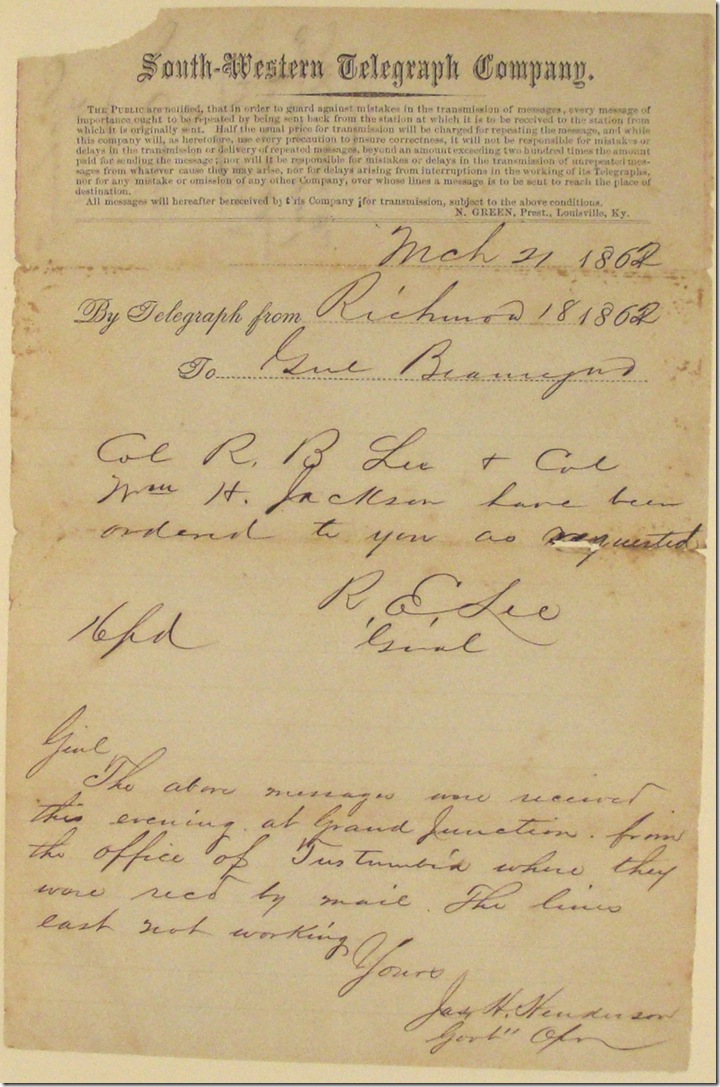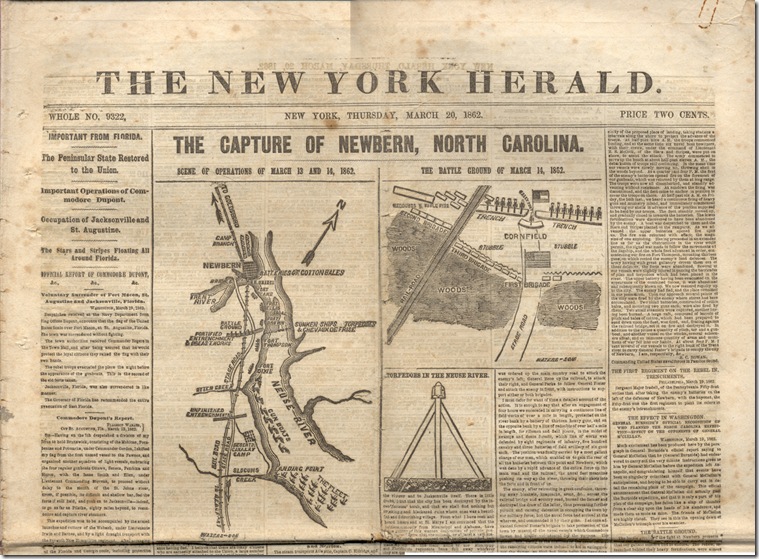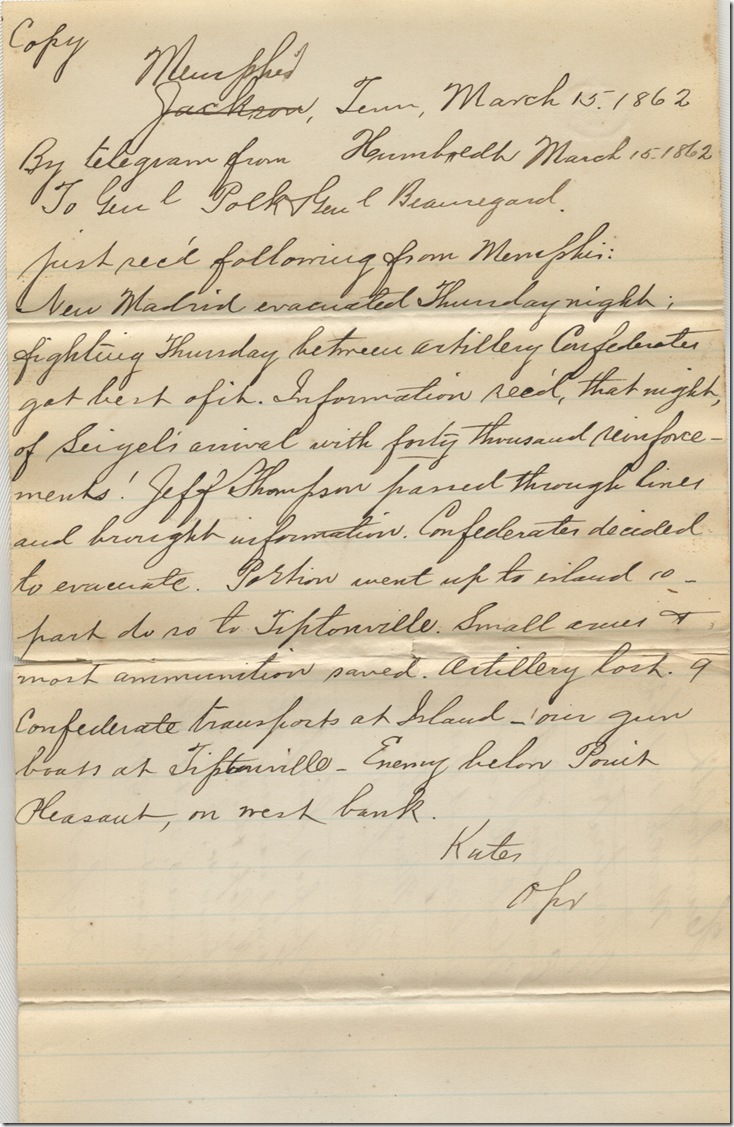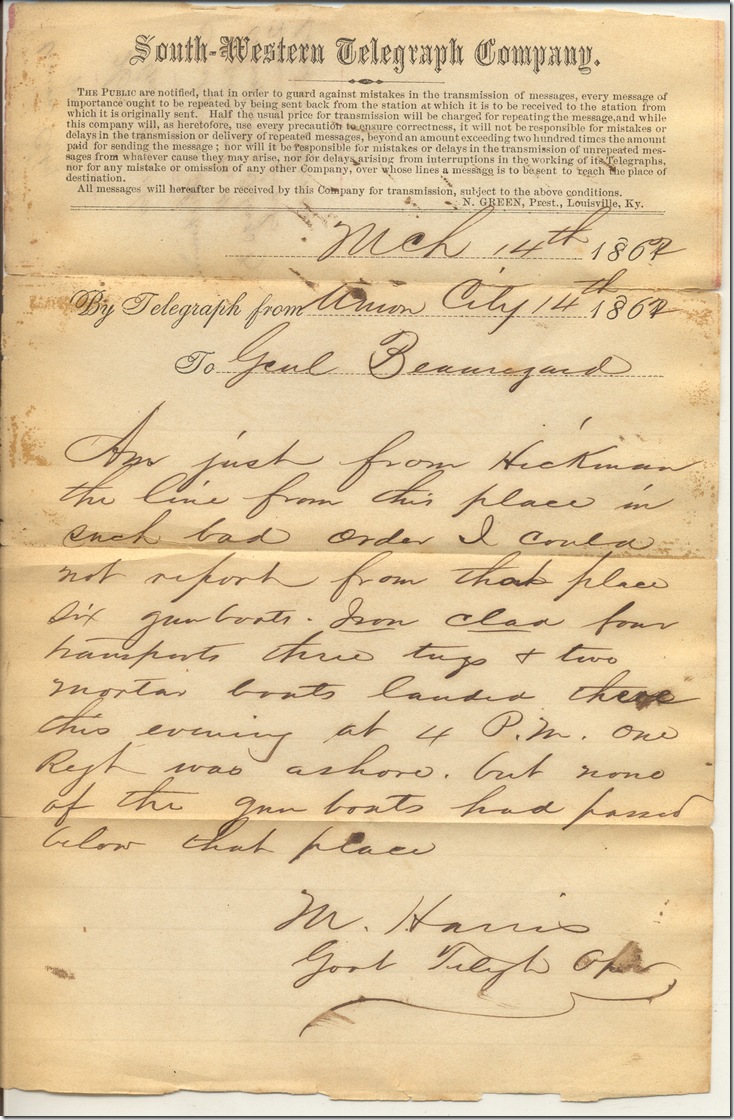Pierre Gustave Toutant Beauregard was a Louisiana-born general of the Confederate States Army. He had graduated second in his class from West Point in 1838 and was an admirer of Napoleon. He achieved fame early in the Civil War for commanding the Fort Sumter bombardment and as the victor of the first battle of Manassas. He later served in the Western Theater (including Shiloh and Corinth), Charleston, and the defense of Richmond, but his career was hampered by friction with Jefferson Davis and other generals.
This telegram is from The Telegraphic History of the Civil War; a compiled album of telegrams to Beauregard from Davis, Lee, Johnston and others.
Transcript:
Corinth Miss 31 1862
By Telegraph from Richmond 31 1862
To Genl G T Beauregard
Genl Hawes & Brown are with the command of Genl AS Johnston. Col R. B. Lee on way to you. Capt Waghler ordered 24th July to you. An artillery officer will be sent.
R E Lee
31 Pd
Note: Another hand has crossed out “Waghler” and wrote in pencil at the bottom “Wampler—Engrs,” perhaps the Confederate engineer John Morris Wampler, 1830-1863.
Citation:Robert E. Lee (1807-1870), telegram to G.T. Beauregard. Richmond, 31 March 1862. In The telegraphic history of the Civil War, 1861-1865. AMs 434/16
